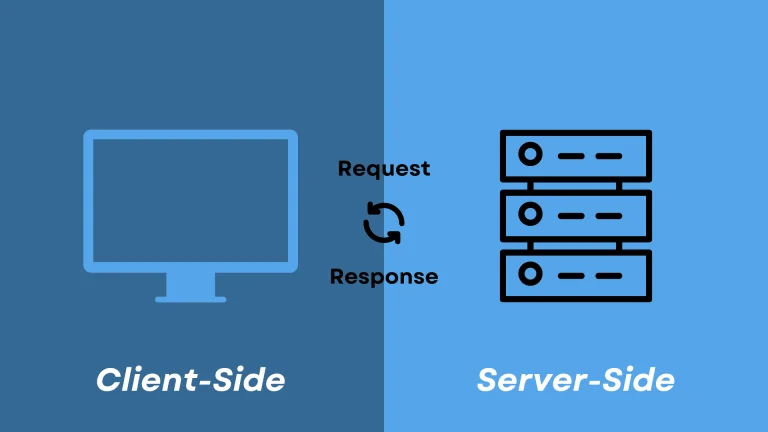Server-Side Scripting: PHP, Node.js, Python – A Detailed Comparison

Server-Side Scripting: PHP, Node.js, Python – A Detailed Comparison
Introduction
Server-side scripting is a critical component of modern web development, powering the backend of websites and applications. Among the many languages and environments used, PHP, Node.js, and Python stand out as popular choices. This article provides an in-depth comparison to help developers and businesses make informed decisions based on their specific needs.
What is Server-Side Scripting?
Server-side scripting involves writing scripts that are executed on a web server, generating dynamic web pages. It’s a cornerstone of creating interactive, user-focused web applications.
Key Components:
- Database Interactions
- User Authentication
- Page Content Generation
Here’s a detailed comparison of server-side scripting using PHP, Node.js, and Python across various criteria:
1. Language Overview
- PHP:
- Designed for web development.
- Embeds easily within HTML.
- Has a large ecosystem with numerous frameworks and CMS like WordPress.
- Node.js:
- JavaScript runtime built on Chrome's V8 engine.
- Enables server-side scripting with JavaScript.
- Well-suited for I/O-intensive applications.
- Python:
- General-purpose programming language.
- Known for its readability and simplicity.
- Supports multiple programming paradigms.
2. Performance
- PHP:
- Suitable for web applications.
- Built-in web server for testing.
- Generally slower for CPU-intensive tasks.
- Node.js:
- Excellent for handling concurrent connections due to its event-driven architecture.
- Non-blocking I/O operations.
- Often faster in I/O-bound applications.
- Python:
- Versatile with strong performance in scientific computing, data processing.
- Slower compared to Node.js for I/O operations.
- Offers libraries like asyncio for asynchronous programming.
3. Scalability
- PHP:
- Traditional LAMP stack scales well for many web applications.
- Not ideal for real-time applications.
- Node.js:
- Highly scalable for real-time applications (e.g., chat applications, online gaming).
- Single-threaded but can handle many connections.
- Python:
- Scalable with frameworks like Django and Flask.
- Good for both web applications and complex data processing.
4. Ecosystem and Libraries
- PHP:
- Rich ecosystem with many pre-built solutions.
- Extensive documentation and community support.
- CMS options like WordPress dominate the market.
- Node.js:
- npm (Node Package Manager) offers a vast repository of modules.
- Active community with continuous updates and support.
- Python:
- Comprehensive standard library.
- Pip for package management.
- Strong community support, especially in scientific and data analysis communities.
5. Learning Curve
- PHP:
- Easy to start with for web development.
- Can be embedded within HTML.
- Node.js:
- Requires understanding of JavaScript and asynchronous programming.
- Steeper learning curve for beginners in backend development.
- Python:
- Very beginner-friendly.
- Clean and readable syntax.
- Wide adoption in educational contexts.
6. Frameworks
- PHP:
- Laravel, Symfony, CodeIgniter.
- Supports rapid development and follows MVC architecture.
- Node.js:
- Express.js, Koa.js, Sails.js.
- Lightweight and flexible, good for building RESTful APIs.
- Python:
- Django, Flask, Pyramid.
- Django is feature-rich, Flask is minimalistic and flexible.
7. Use Cases
- PHP:
- Content Management Systems (CMS).
- E-commerce platforms.
- General web development.
- Node.js:
- Real-time applications (e.g., chat, live updates).
- Single-page applications (SPAs).
- APIs and microservices.
- Python:
- Web development.
- Data science and machine learning.
- Scripting and automation.
8. Hosting and Deployment
- PHP:
- Widely supported by most web hosting services.
- Easy to deploy.
- Node.js:
- Requires specialized hosting (e.g., Heroku, AWS).
- Deployment can be more complex due to environment setup.
- Python:
- Supported by many PaaS providers (e.g., Heroku, AWS, Google Cloud).
- Flexible deployment options (e.g., Docker, virtual environments).
Conclusion
- PHP is a solid choice for traditional web development, especially where CMS or e-commerce platforms are needed.
- Node.js is ideal for real-time applications, SPAs, and scenarios requiring high concurrency.
- Python is versatile, excelling in both web development and other domains like data science, making it a great all-rounder.
Choosing the right server-side scripting language depends on your specific project requirements, existing skill set, and the development ecosystem you prefer.
Related Posts:
- Tailwind CSS: Revolutionizing Modern Web Design
- The Future of Web Development Technologies: Trends to Watch in 2024
- Server-Side Scripting: PHP, Node.js, Python – A Detailed Comparison
- Tips for Writing Clean, Understandable, and Efficient Code: Avoiding Garbage Code
- Securing Your Website in 2024: Essential Strategies for Online Safety
- Basic Linux Commands for Beginners: A Starter Guide
- How Banks Handle Server-Side Operations and Ensure System Security: An Inside Look
Latest Posts
- Server-Side Scripting: PHP, Node.js, Python – A Detailed Comparison
- Securing Your Website in 2024: Essential Strategies for Online Safety
- The Future of Web Development Technologies: Trends to Watch in 2024
- How Banks Handle Server-Side Operations and Ensure System Security: An Inside Look
- Tips for Writing Clean, Understandable, and Efficient Code: Avoiding Garbage Code
- Tailwind CSS: Revolutionizing Modern Web Design
- Basic Linux Commands for Beginners: A Starter Guide
- Dairy Farming Loan Apply
- BSNL Recharge Plan
- Bijli Bill Mafi Yojana Online Apply
Technical
- DevOps Roadmap
- How To Install and Configure an SNMP on Ubuntu 20.04
- Apple releases iOS 18 Developer Beta 2 with iPhone screen mirroring, RCS toggle,and more
- How to enable SNMP on Ubuntu Linux 18.04 and above
- How to Force HTTPS Using .htaccess (Updated 2024)
- Display All PHP Errors: Basic & Advanced Usage
- PHP alert
- MongoDB loads but breaks, returning status=14
- MongoDB database deleted automatically
- MongoDB all Error Solutions
Category
